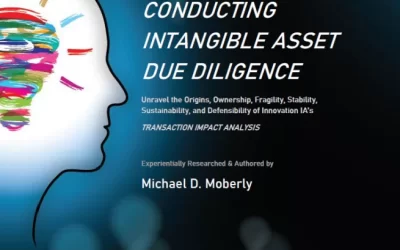Michael D. Moberly April 17, 2009 (Part 3 of 3 part post)
Should Colleges and Universities Care?
In the ‘global (business – transaction) economy no longer is there any practical or useful distinction between national economic relations and international economic relations. Most national economies, like that of the U.S., are no longer islands where domestic preferences alone dictate outcomes. (Sean Gregory and William Warner)
Similarly, the perception that university-based research is removed from all worldly concerns, vulnerabilities, and threats e.g., misappropriation, infringement, economic espionage, targeting by adversary (terrorist) organizations, etc., belongs more to wishful thinking than reality.
Legislation in the late 1980’s and early 1990’s (Cooperative Research and Development Agreements – CRADA’s, etc.) prompted significant interest in commercializing academic (university-based) research. Researchers and scientists were encouraged to collaborate with (private) industry to speed the transfer – commercialization of ideas from academia to the marketplace, particularly new technologies with dual-use capabilities to, among other goals, ensure the intellectual resources developed within university research communities would contribute to U.S. economic competitiveness. (Is Science For Sale?: Transferring Technology From Universities to Foreign Corporations. Report by the Committee on Governmental Operations. October 16, 1992. House Report 102-1052)
Today’s goods and services though, frequently demand such high technology content to remain competitive, that fewer companies can afford full, vertical integration and mastery of all the technologies required for inclusion and ultimately, manufacturing. One outcome is a marked increase in alliances, consortiums, and collaborative relationships between universities and corporations globally. Collaborations on this scale and at this level are not only a result of today’s highly competitive, go fast, go hard, go global environment, they’re also actively shaping the competitive arena in many industries. Such collaborations, alliances, and consortiums have evolved into competition in a different form!
Another outcome is that a growing number of universities are becoming more ‘entrepreneurial spirited’ in terms of their interest (receptivity) to consider – pursue new collaborative opportunities to secure research support. (M. Moberly) As reported by the Association of University Technology Managers (AUTM), the growth in academic technology transfer is having a positive impact. Companies are investing in technologies licensed by academic institutions. This investment yields jobs and economic growth, and the resulting products benefit the public and the communities in which the universities reside. In some instances, the royalties generated can (a.) provide incentives to inventors (researchers, scientists), (b.) contribute to reimbursing the institutions’ considerable (technology transfer) costs, e.g., patenting and licensing, and (c.) be reinvested in research and teaching, thus ensuring future advances are more probable.
Initiatives like this, also present new challenges and even some vulnerabilities for some universities relative to the shareability and accessibility of university developed research, e.g., know how, intangible assets, and intellectual property.
It’s not the intent of this post to advocate controls be placed on the communication or collaborative arrangements of university-based scientific research in a manner that would unnecessarily undermine the principles of academic freedom and open scientific communication.
It is the intent of this post however, to encourage the inclusion, in future debates in which open scientific communication and academic freedom are debated; the existence and adverse effects of technologically sophisticated, aggressive, predatorial and global competitor-economic intelligence and terrorist organizations’ interest in acquiring not only economic information and science for competitive advantage, but dual-use technologies as well…
By encouraging this element be included in future debates, it should prevent some to wrongfully characterize this post as a:
– protectionists ’ attempt to influence debate about scientific communication in favor of exerting – imposing greater controls, or
– subterfuge by private R&D firms to exploit or legitimize their growing influence over research agendas in universities, or even
– poorly disguised attempt to ride the wave of domestic (homeland) security initiatives and rhetoric following the terrorist attacks of September 11th.
Any such interpretation would be naïve and short-sighted and certainly a disservice to any future discussion about open scientific (university) communication if the proliferation (adverse effects, impact) of competitor and economic intelligence and various elicitation-solicitation practices were not fully considered (factored).
In the final analysis, this issue may have little, if anything, to do with secrecy or an institution’s well intentioned desire to sustain and continue to foster scientific openness on behalf of its researchers and scientists. Rather, the issue will certainly evolve around (a.) personal privacy, (b.) professional attribution, (c.) sustaining control, use, and ownership of the intellectual property rights and (proprietary) competitive advantages, and perhaps most importantly, (d.) keeping military-defense related advances and technologies out of the hands of (economic, competitive, terrorist) adversaries.



